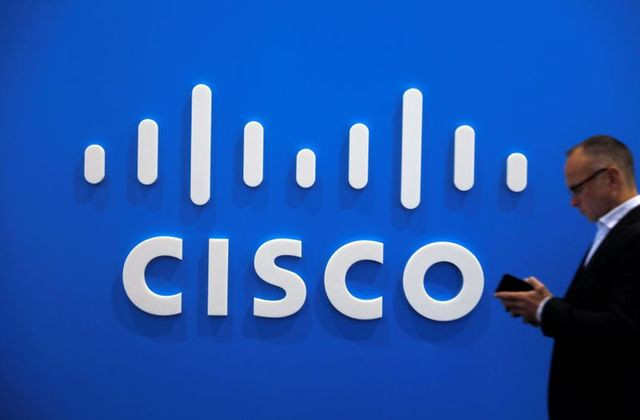Is investing in Quantum 2.0 the next big thing?
Single factor that has made a dramatic shift in global cybersecurity architecture is quantum computing technology

This quarter, CISCO, the company responsible for manufacturing networking equipment, announced its biggest-ever acquisition deal of $28b to buy the cybersecurity firm Splunk. This occurred against the backdrop of a breach of its corporate network in 2022 by the UNC2447 cybercrime gang, which stole confidential information and attempted to extort the company for money.
With cyber-attacks coming fast and furious, there is an ever-growing demand to protect against sophisticated threat actors and ransomware incidents. However, the single factor that has made a dramatic shift in the global cybersecurity architecture is quantum computing technology.
These quantum computers, as they become more powerful and reliable, pose a serious threat to our banking systems as they can break encryption keys within hours. Google’s 54-qubit quantum computer solved a problem that would have taken 10,000 years on a supercomputer in a mere 200 seconds. Concerning breaking encryption schemes, America’s Department of Homeland Security stated that cracking the RSA-2048 scheme could be feasible as soon as 2030. Criminal groups, anticipating an upcoming quantum era, are stealing encrypted intellectual property and other types of data to conduct “store now, decrypt later” (SNDL) attacks. The weaponization of this technology in the future will disrupt the security sphere globally as codebreaking undergoes revolution, and security systems crumble in Quantum 2.0.
Last year (2022), venture capitalists poured $2.35 billion into quantum technology start-ups, including companies in quantum computing, cryptography, and codebreaking. In October 2023, one such company, Atom Computing, created the first quantum computer to surpass the 1000 qubits mark, beating the previous IBM Osprey machine’s 433 qubits record. With investments pouring in continuously for quantum tech, McKinsey estimates that quantum technologies will have a global market share of over $1 trillion by 2035.
China is undoubtedly the world leader in quantum computing and has created a quantum network spanning thousands of kilometres between Shanghai and Beijing while demonstrating an unhackable satellite link between two ground stations. Whether it is quantum radar or codebreaking, China is years ahead of its peers like India and the EU.
India has started active collaborations on quantum technology with academic institutes such as the University of Cambridge in the UK. The Indian Union Cabinet in March approved a budget of Rs6,000 crore for quantum computing, aimed at scaling efforts led by various scientists and engineers. With an objective to build a 1000-qubit quantum computer by the end of this decade, India is looking into international partnerships under the US-India Initiative for Critical Emerging Technologies (IcET).
India has also established a Quantum Key Distribution (QKD) link covering 100 km between Prayagraj and Vindhyachalm while ISRO is working on quantum satellites simultaneously. India established its first quantum communication link this year in March, operational between the Ministry of Communication and the National Informatics Centre office located in CGO Complex in New Delhi. The ministry has also launched a hackathon on ethical hacking where any individual who can break this quantum system shall be given Rs10 lacs as a prize.
On similar policy lines, the US has passed a Quantum Security Preparedness Act and is pushing its federal agencies to migrate their encryption systems from conventional to post-quantum cryptographic ones, those resistant to futuristic quantum attacks.
When it comes to Pakistan, our federal government has approved the establishment of a center of excellence for quantum computing at UET Narowal Campus, with five allied labs distributed across different cities in Pakistan. If we fast-track our efforts, we could be looking to join the elite club of nations (US, China, France, Canada, Finland, Austria, India) already working on Quantum 2.0 technologies. This is important as Pakistan’s access to IBM’s quantum computer was revoked this year, and now, we must develop our own quantum computer indigenously to stay at the forefront of this technological frontier.
In a nutshell, we can say that quantum is the new “nuclear,” and those countries with a head start in this domain will have a sustained competitive advantage for years to come. It is the need of the hour that policymakers involved in the planning process move beyond bureaucratic politics to kickstart research in quantum in the face of relentless developments in our neighbourhood and to ensure that these investments pay off. Committing seed funds for quantum would solve a lot of problems, but the road to a “Made in Pakistan” quantum computer is by no means an easy task, albeit not an impossible one.
THE WRITER IS A CAMBRIDGE GRADUATE AND IS WORKING AS A STRATEGY CONSULTANT
Published in The Express Tribune, December 27th, 2023.
Like Business on Facebook, follow @TribuneBiz on Twitter to stay informed and join in the conversation.


















COMMENTS
Comments are moderated and generally will be posted if they are on-topic and not abusive.
For more information, please see our Comments FAQ